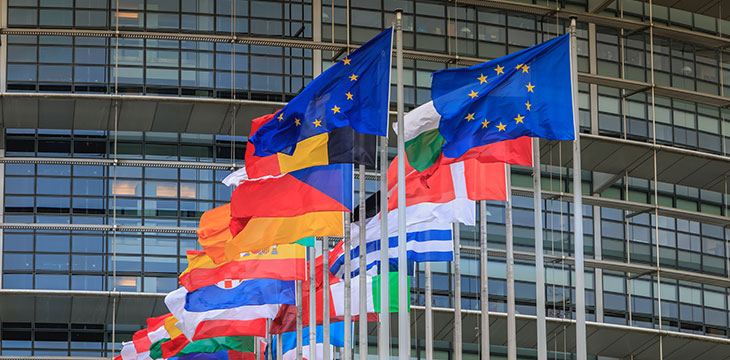|
Getting your Trinity Audio player ready...
|
In January, after debates spanning more than two years, the European Union (EU) introduced the Markets in Financial Instruments Directive II (MiFID II), which was an update to regulations governing the financial markets first introduced in 2007. The directive was designed to ensure greater efficiency in the markets while facilitating improved transparency. Financial institutions across the EU are required to adhere to the MiFID II guidelines, so the fact that a cryptocurrency exchange is going to be operating under the same set of rules is a pretty big deal.
Blocktrade.com is the first regulated cryptocurrency exchange in the EU. It is currently operating for beta testing, and offers trading of Bitcoin Cash (BCH), the world’s only true retail-driven digital currency, BTC, Litecoin (LTC), Ethereum (ETH) and Ripple (XRP). The cryptocurrency exchange will gradually offer other products, such as tokenized assets, security tokens and Crypto Traded Indices later this year. Users can now register to use the platform, and Blocktrade.com hopes to fully launch in September.
According to Blocktrade.com CEO Luka Gubo, “This is an ideal way for regulators across Europe to recognize cryptocurrencies as a new asset class and put in a regulatory framework.”
Despite the fact that there are more than 1,500 virtual currencies currently been offered on over 170 cryptocurrency exchanges, with up to 60 trades per minute seen at peak times, not one of the cryptocurrency exchanges is regulated under MiFID II policies. This now changes with Blocktrade.com’s new platform, which should be a precursor to further acceptance around the world.
Despite maturing of the crypto ecosystem, a lot of institutional investors still view crypto trading as being too risky. This is due to a perceived lack of transparency and/or lack of regulations governing digital asset trading. Says Gubo, “If an institutional investor wants to invest in cryptocurrencies, they currently have a problem. Where do you send the order to buy? There’s a lot of speculative valuing in cryptocurrencies, so there’s currently no way to lower the volatility—proper regulation is the only way to lower that risk.”
Gubo, who is a former finance investor, indicated that traditional exchanges are warming up to the idea of more regulations. He said, “The regulated exchanges see the unregulated ones as unwelcome competition because they break the law to their own advantage. These exchanges need to follow the rules, but they don’t.” He predicts that the market volatility will disappear once more institutions begin to embrace digital assets on a large scale.
Many still view the crypto industry as living in a “Wild West” environment, highlighted by a lack of regulations and more than a few bad players. However, this is changing on a daily basis and, by this time next year, the whole world is going to see cryptocurrency in a completely different light.

 03-05-2026
03-05-2026 




